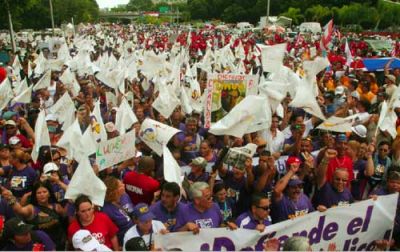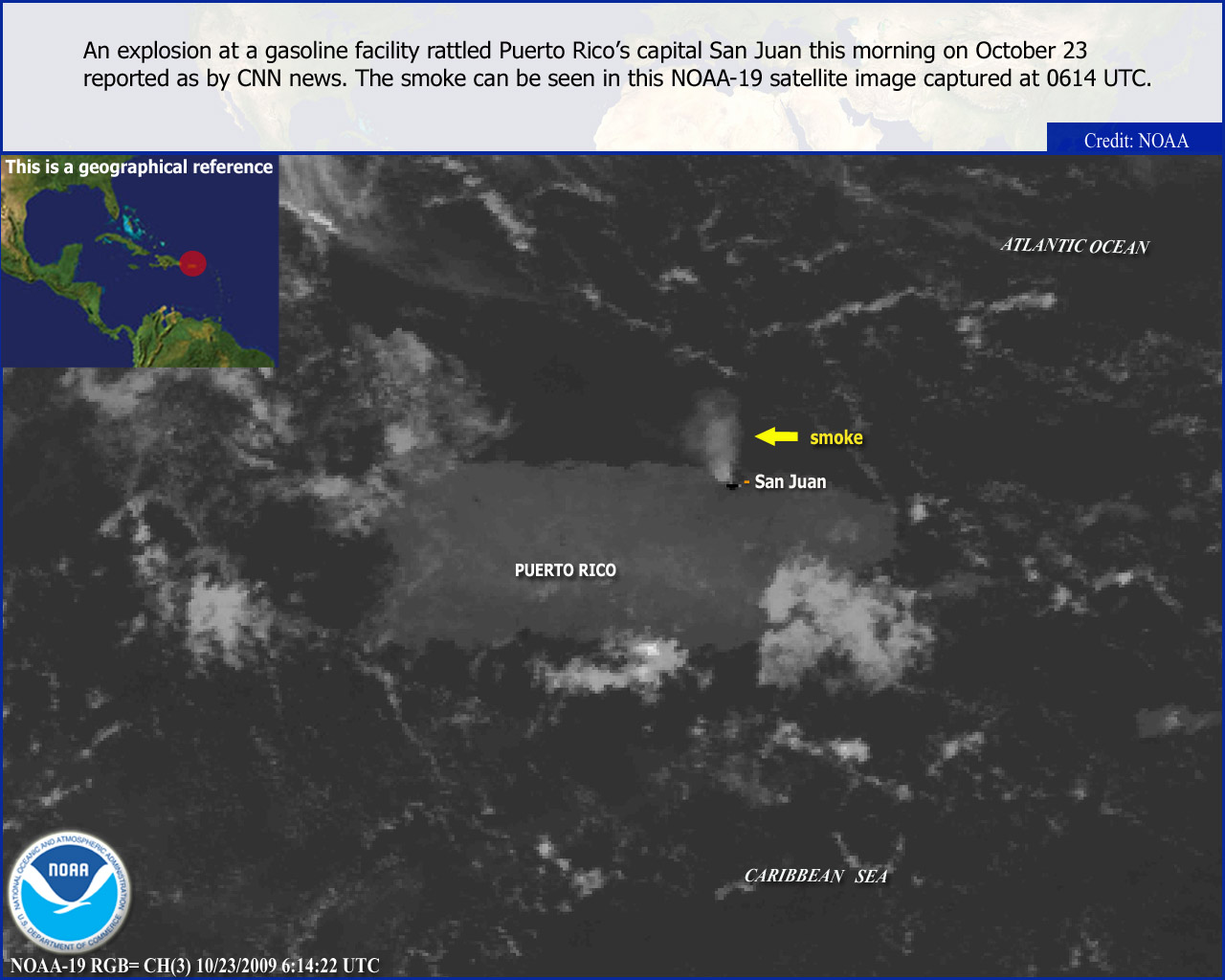“In Puerto Rico, the SEIU is embroiled with the Teachers Federation, a 42,000-member independent union of public school teachers. After a 10-day inconclusive strike in February, the Federation was punished by losing its right to represent the teachers. The SEIU reached an agreement with a rival teachers group and supported its request for a collective bargaining election, which in effect would eliminate, if not destroy, the Teachers Federation. At the SEIU convention hall in Puerto Rico, a mass delegation of Teachers Federation members demonstrated with picket signs “Stop Union Raid.” Many of Stern’s critics support the Federation’s battle for survival. They ask: Will the new clause on “aiding” a “rival” make them vulnerable to disciplinary charges for openly expressing that support?”
uniondemocracy.org
Below: entire article
AUDHome–> Union Democracy Review–> Articles
SUBSCRIBE to Union Democracy Review!
From the July-August 2008 issue of Union Democracy Review #174
Reflections on the SEIU Convention in Puerto Rico
At the June convention of the Service Employees International Union, climaxing President Andy Stern’s twelve years in office, a big majority of the 1,900 convention delegates endorsed his program and endowed him with increased power amounting to presidential authoritarianism couched in democratic verbiage.
But he has paid a price for that victory. When he first took office 12 years ago, his plans were greeted with near-unanimity by labor activists and pro-labor academics, and he was hailed in the press as the promising new labor leader. He came out of this convention stronger organizationally and constitutionally but with a diminished image. On the eve of the convention, a hundred writers, labor educators, and academics had expressed concern over the fate of SEIU democracy under his tutelage. Sal Rosselli, a major SEIU leader, broke with the administration and emerged at this convention as an outspoken oppositionist. Unexpectedly, more than a dozen rank and file delegates ran for international positions as insurgents. None were successful, but protest votes on their behalf were recorded from 15% of the delegates.
The union administration summed up its proposed program of action for the next four years until the next convention in an ambitious, emotion-stimulating 31-page declaration, “Justice for All.” It began on a high note of great promise and expectation. “We stand for not only ‘Just Us’ but for ‘Justice for All’ workers in our industries and in our country.” It called for “a more just and humane society”, for us and “for future generations.” That lofty theme was sustained and repeated in a multitude of variations. No one could fault such lofty goals. Can anyone object to justice for all? In a post-convention letter to educators, a Rosselli spokesman wrote, “Delegates from our local union … supported core parts of a platform proposed by our union’s national leadership, including expanding our organizing efforts and improving regional and national coordination among SEIU locals.”
But how to go about revitalizing the labor movement and changing the world? There’s the rub. And so there was criticism, and it was just as sharp and emotional as Stern’s support was enthusiastic. It emanated from two main sources: 140 delegates from Sal Rosselli’s 140,000-member United Healthcare Workers-West and about 100 delegates from other locals, many of whom joined together in a loose rank and file caucus called SMART (for SEIU Member Activists for Reform Today.)
In the spirit of “one national strategy” and “one voice” (phrases repeated over and again) the administration proposed a bewildering creation of boards, committees, and subcommittees — wheels within wheels — all dominated by the international president. Critics charged that the new structure of Division Leadership Boards and National Bargaining Teams overloads the system with international officers and appointive staff and reduces representation from local leaders and rank and filers.
But the critics’ main objection is to Stern’s basic plan, the stratagem that he hopes will open the road to a massive rise in membership. Stern is convinced that traditional unionism is not working; he would not rely on the old-fashioned method of inspiring workers in a battle for union recognition. He proposes to organize hundreds of thousands of new members, perhaps even millions, not in conflict with multi-million dollar global capitalists and corporate buyout firms, but in cooperation with them. That central aim was only imperfectly touched upon, and only by implication, in convention documents.
Many months before the convention, Stern disclosed his intentions to Kris Maher, a Wall Street Journal reporter, who wrote “Mr. Stern says he wants to remake the labor movement by shedding the old adversarial image and creating more labor management partnerships.” Stern told him, “We want to find a 21st century new model that is less focused on individual grievances, more focused on industry needs.” Alan Murray, of the WSJ, wrote that Stern told him, “he much prefers working with the buyout kings than with their public-company counterparts, ‘I’ve been incredibly impressed,’ he said, ‘…these men have much more understanding of what we are trying to accomplish.’ ” What all this means in practice has been revealed in actual agreements Stern worked out with cooperating employers:
In 2003, Stern negotiated an agreement with the employers’ California Alliance, an association representing 284 nursing homes. The Alliance turned over 42 of its homes with some 2,000 members to the union; but the union agreed that it would be barred from trying to organize its 185 non-union facilities. According to the UHW-W, the agreement covering the newly organized sites undercut union standards in the industry. It provided no vacation, holiday, or sick pay; no seniority rights, strict limits on stewards, and management’s right to change the economic terms of the agreement. The SEIU units were, according to UHW “close to becoming …company unions.” Rosselli’s public repudiation of the deal marked his break with Stern. Under pressure of mass protests from the UHW-W membership, Stern backed off and ended the controversial arrangement. But he had not abandoned his basic policy:
On May 10, Kris Maher reported that the SEIU and UNITE/HERE (Change to Win allies) had entered into secret agreements with two global employers of service workers, Sodexho and the Compass Group. “The old ways aren’t working,” Stern told Maher, “and we’re trying to find different relationships with employers that guarantee workers a voice.” And so, unions are formed behind the backs of workers and with the permission and cooperation of the employers. Not just the terms of the agreements, but their very existence is not to be disclosed, not even to the lucky new union members. Of the several hundred thousand workers employed in North America, the union will be permitted to organize a limited number at designated sites; the companies will cooperate by providing lists of the employees and permitting union access to their work sites. The unions agree to be barred from attempting to organize the others; and they will not post derogatory remarks about the companies anywhere in the world.
Stern aims to increase union membership and minimize individual grievances. In that spirit, the convention endorsed the administration’s proposals for “Membership Resource Centers.” From now on, instead of presenting their “job problems” on the work site to a flesh and blood steward-representative, members will log in to a central office where they will get “expert” advice from a voice at the other end of the line — perhaps human, perhaps electronic. This novel system will transform the whole dynamic between the union and its members. Shop stewards under pressure of their constituents day to day on the job, especially those elected, are motivated to take grievances seriously and work hard to satisfy the grievant. But the owners of those voices on the telephone will know that they are appointed by an administration that views grievances as a distraction. To please the boss who appointed them, they will be motivated to slough off those distracting “job problems.”
Its rhetorical call for justice for all — for the poor, the immigrants, the minorities, the oppressed — has enabled Stern to rally round him a troop of social idealists in whose eyes the SEIU has become an extension of civil rights campaigning and community organizing. On the other hand, its trend toward bureaucratic central control, and its justification of a kind of defanged hybrid unionism to be built in cooperation with big domestic and global corporations, has alienated a whole other cadre of social idealists who want the labor movement to be a democratic movement of workers, a movement that, they feel, can only be built in confrontation with big capital.
Two conceptions of the labor movement are counterposed. Because the SEIU has been built and has acquired power by action of militant union loyalists, not by corporate partners, at some point even Stern’s own followers are bound to ask, “What kind of labor movement are we building?” This is no crude battle for power. It is no conflict between so-called “business” and “social” unionism. Nor between a conservative “right” and a militant “left.” Nor between crooks and honest unionists. It is a dispute over the meaning and nature of democracy in the labor movement. Those “alternative visions of trade unionism” could be counterposed only inadequately and tentatively at this convention. What are the chances for a serous discussion during the four years before the next convention?
There are disquieting signs: The administration’s repeated call for “one voice” and “one national strategy” doesn’t encourage independent views. Stern appears to have backed off from a threat to trustee Rosselli’s UHW-W healthcare local; but the international now pursues Rosselli and other local officers by a complex suit in federal court. The convention adopted a resolution that will strip the dissident local of 65,000 of its 140,000 members.
The convention voted to expand the reach of its constitutional ban on supporting “dual unionism.” A member or local union can now be charged for “aiding a rival labor organization.” This provision is obviously prompted by a rivalry between the SEIU and at least two other unions. The California Nurses Association, an AFL-CIO affiliate, is extending its reach beyond California to the whole nation, thereby offering an alternative to any registered nurses who might be dissatisfied with existing SEIU representation. The bar on “aiding” rival unions can create a dangerous problem for SEIU locals which have overlapping, but friendly, representation in areas where the CNA represents nurses and the SEIU all other employees at a given site. Despite the hostility between the two national unions, practical necessity impels locals to cooperate. Stern’s critics, wary of how he will interpret “aiding” a “rival,” fear that he will use the new provision against them.
In Puerto Rico, the SEIU is embroiled with the Teachers Federation, a 42,000-member independent union of public school teachers. After a 10-day inconclusive strike in February, the Federation was punished by losing its right to represent the teachers. The SEIU reached an agreement with a rival teachers group and supported its request for a collective bargaining election, which in effect would eliminate, if not destroy, the Teachers Federation. At the SEIU convention hall in Puerto Rico, a mass delegation of Teachers Federation members demonstrated with picket signs “Stop Union Raid.” Many of Stern’s critics support the Federation’s battle for survival. They ask: Will the new clause on “aiding” a “rival” make them vulnerable to disciplinary charges for openly expressing that support?
How will it all work out? Will Stern’s program fulfill its promise as a devious route toward social justice for all in America, or will the centralized bureaucracy and the special deals with employers choke out the very spirit of idealism that inspires Stern’s dedicated followers? That question can be answered only after extended experience. Will the Stern regime use the endorsement by the convention of its “one voice” and “one national strategy” to justify turning the collectivity of hired staff, appointive and elected local leaders, and international officers into a disciplined goose-step apparatus to glorify the official line and exalt its results; or will it tolerate, if it will not encourage, the kind of free discussion that can truly assess what is achieved? The answer to that question can come promptly in how the regime responds to critics like Sal Rosselli in United Healthcare-West and other critics in SEIU locals around the country.




